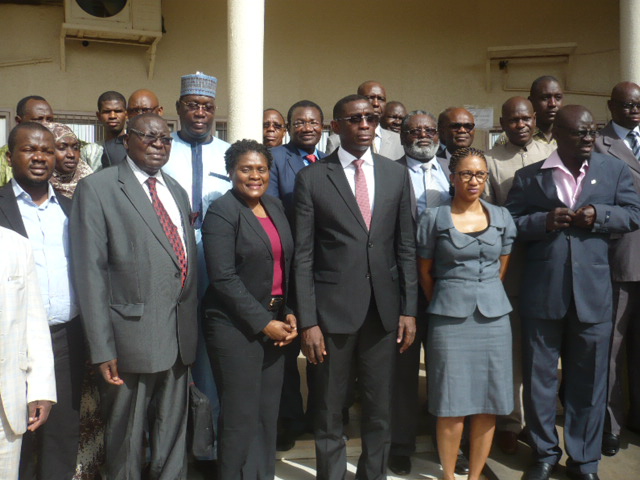 Air transport is a real challenge in West Africa. This observation was made by Niger’s Senior Minister of Transport, Omar Hamidou Tchiana, on 17 May 2016 in Niamey, at the opening of the validation workshop on the draft final report of the study for airport infrastructure development in West Africa. Air transport is a real challenge in West Africa. This observation was made by Niger’s Senior Minister of Transport, Omar Hamidou Tchiana, on 17 May 2016 in Niamey, at the opening of the validation workshop on the draft final report of the study for airport infrastructure development in West Africa.
According to him, the transport sub-sector in the West African sub-region is characterised by high freight and cargo costs, inadequate infrastructure, as well as difficult connections and high accident risks.
Mr. Tchiana noted that, nowadays, imperatives of growth and strengthening integration in this part of the world require increased trade among the various countries.
Faced with regional transport infrastructure development challenges, in particular at airport facilities, Omar Hamidou Tchiana made a case for global, coordinated and concerted responses; hence the importance of this workshop, he disclosed.
He urged the participants to thoroughly examine the report to be submitted for their consideration, and put forward relevant recommendations to enable the consultant carry on with the study in line with guidelines that are in the interest of ECOWAS Member States.
Regarding the study, ECOWAS Commissioner for Infrastructure, Dr. Antoinette Weeks, recalled its objective, which was to conduct a situation analysis on airport infrastructure and equipment in Member States and identify current and long-term needs.
She also stated that the study would identify regional priority projects and programmes to improve air transport in the ECOWAS region.
Dr. Weeks noted that the transport sector was one of the key factors of regional integration and an important element for economic growth and social development.
Despite the gains made through the institutional reforms undertaken in air transport, the sector was still confronted with challenges, she observed.
«Africa has a 12%-air accident rate, which is six times the global average. In addition, 60% of air accidents occur in five African countries, including ECOWAS countries. These are very alarming statistics and concerted effort will be needed to reverse the trend», Dr. Weeks concluded.
In order to address this bleak situation, the ECOWAS Commission, through its Project Preparation and Development Unit (PPDU), based in Lomé, Togo, conducted a feasibility study on airport equipment and infrastructure development in Member States. The study intends to develop a blueprint for the enhancement and development of the said equipment and infrastructure.
For West Africa in particular, the study aims to take stock of airport equipment and infrastructure in each country, make a proposal on current and future needs, and determine the viability of identified programmes and projects.
It also seeks to develop a short, medium and long-term financing plan, and propose a regional coordination mechanism for the implementation of the proposed blueprint.
The Niamey workshop, convened by PPDU, follows a series of meetings on the outcome of the feasibility study. In the first instance, the preliminary report of the study, submitted in September 2015, was validated by Member States’ experts and other stakeholders at a meeting held a month earlier in Lomé.
A take-off meeting of the study was held in April 2015, still in the Togolese capital. It was followed, in May and June 2015, by a data collection mission to ECOWAS Member States and various regional institutions, alongside a visit to about thirty airports in the region.
Participants in the Niamey workshop include ECOWAS Member States’ representatives and technical and financial partners, international organisations in charge of Civil Aviation, as well as staff from PPDU and Infrastructure Department of the ECOWAS Commission. |




